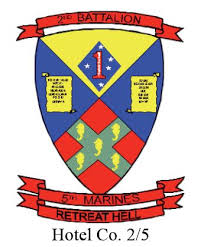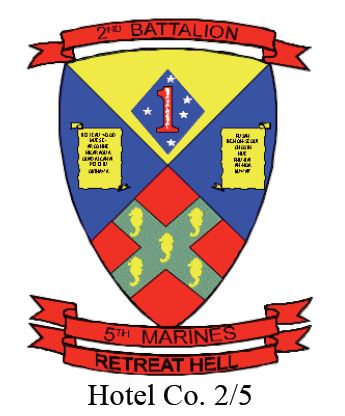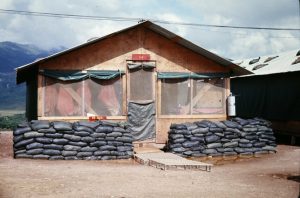 Mail call was an extremely important event for those of us out in the bush looking for a moment of escape from the war. Reading a letter from home, a safe place, from mom or dad, our wives, a brother, or sister, from a girlfriend, in my case, my fiancé, was always refreshing and encouraging. It was always a reminder of why I worked so hard to stay alive.
Mail call was an extremely important event for those of us out in the bush looking for a moment of escape from the war. Reading a letter from home, a safe place, from mom or dad, our wives, a brother, or sister, from a girlfriend, in my case, my fiancé, was always refreshing and encouraging. It was always a reminder of why I worked so hard to stay alive.
Back in the Vietnam War, we didn’t have cell phones to be able to communicate with our loved ones back home. The APO/FPO was the only means of communication with exception to the MARS program. (See post – MARS)
Sending a letter or package was one way to show love and support. Military Mail is the only way for a package to get mailed to an APO or FPO. UPS and other shipping services couldn’t send packages to us. FedEx didn’t exist yet. In the mail came 1st class letters, small packages, small boxes, and larger packages and boxes. The 1st class letters got to us first. They were lighter, easier to manage and process. Packages and boxes that were mailed to us took much longer to get out into the field.
Below is a list of restricted items that should not be shipped to an FPO or APO address back in those days:
-
-
- Perishable food items
- Other perishable goods
- Liquid Items
- Glass containers
- Oversized products over 50 pounds
- Any obscene material, including pornographic items
- Any political material
- Pork (or any pork by-products)
- Transistor radios
- Cassette players
- FM transmitters
-
Contrary to what most people thought about the daily mail delivery in Vietnam, the mail didn’t get delivered every day. Sometimes there were delays due to inclement weather. Other times, the LZ or temporary drop zone was too hot (incoming enemy fire) to allow any mail or supplies to be delivered.
A Marine out in the bush in combat could not receive and carry additional personal items with extra weight. This is why most of the heavier boxed packages were kept at the battalion command post until that Marine came out of the field to the rear area unless the unit stayed out in the field weeks at a time.
Even though perishable food items were restricted items, almost 40% of every box package mailed to a Marine in our battalion had rotting food within that mail package. Packages from the States could take from weeks to months to arrive at our battalion CP.
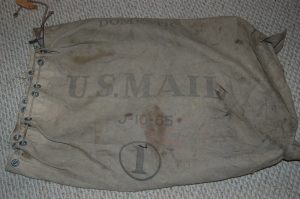 I got involved helping get their packages to them while I was in An Hoa, Phu Loc 6, and Hill 65 during my last six months in Country. If they were small packages without any packing damage, I would put these in a separate mail bag for each company to carry out to the company field CP.
I got involved helping get their packages to them while I was in An Hoa, Phu Loc 6, and Hill 65 during my last six months in Country. If they were small packages without any packing damage, I would put these in a separate mail bag for each company to carry out to the company field CP.
I was always told that I had the right to open any package that was damaged because it was either torn open during shipping, or broken glass, or leaking liquids, or had insects like maggots, flies, larva, bugs, bug slime, or ants in or on the package.
Sometimes a damaged package would stink from rotten food or from the liquids packaged within it. I could not believe in 1969, the kind of stuff families mailed to their sons in Vietnam. My favorites were pickle juice, olive oil, hot peppers, homemade hot sauces and salsa, catchup, mustard, mayonnaise, liquor, etc. In the hot temperatures in Vietnam, baked goods such as birthday cakes, cupcakes, homemade cookies, and homemade breads would rot quickly and smell terrible. I’ve seen rotten birthday cakes arrive in a partially opened package because of the rats chewing on the cardboard package.
I opened a damaged wet cardboard package once that stunk very bad. When I opened it, there was a dead partially decomposed mouse that had chewed at some baked goods that were wrapped in tin foil. Even baked goods placed in tin metal cans would rot if moisture was present. Only goods that were in an airtight, sealed lid survived.
It became my job to sort out all these types of packages, throw away the rotted stuff and salvage the rest of the content of a package for the combat Marine in the bush. Sometimes there might be a picture or a letter tucked inside the poorly packaged box. But I did my best to salvage as much as I could, and sometimes repackaging a box and put the old label on the new box. It had to be put in the correct pile or bag, get out to the right helicopter, going to the right landing zone, to get that package to the right Marine.
I delivered a small package to a machine gunner who had been in Nam about three months who received his package right after a large firefight had completed a few hours before. When he opened it, it had one red bra, one red pair of underwear, and two different bottles of fingernail polish. In her letter she explained that she wore those clothes the day she was mailing the package. She wrote asking him which color fingernail polish he liked the best, the red one or the hot pink one! She wanted to wear the color he liked when he got home. To say the least, he really got a teasing from his fellow Marines, but he did enjoy the package. I was given the package contents to take back to An Hoa, in the helicopter, but I accidently left it on the helo when I got back to the landing strip. I guess I was busy dealing with the outgoing mail.
So, although our battalion had a mailman to handle all the letter mail. It was a challenge to also manage all the packages. I volunteered to take up the slack and get packages that could be delivered to the guys. I carried my M16 whenever I would ride out on a resupply helo to drop off the mail or travel with the Chaplain.
The biggest challenge I had was keeping up with guys who got medevaced. I did my best to get packages and letters to them as soon as possible. Mail that came to a KIA was collected and turned over to S1 personnel to process.
Over 25% of all boxed packages I handled were damaged, torn open, leaked, or had insects crawling in them.
We deliberately held back mail that appeared to be bad news from any lawyer firms or government courts such as legal paperwork, divorce information, a death certificate, etc if we could detect it from the envelope. We would have the Marine transported back to the battalion command post to sign and pick up that type of mail rather than send it out into the combat zone.
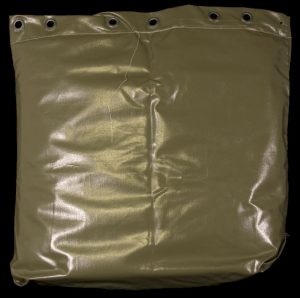 In the Vietnam War, the military experimented with using bags like this one to drop mail from helicopters.
In the Vietnam War, the military experimented with using bags like this one to drop mail from helicopters.
Unfortunately, this type of bag blended in with the jungle too well, making it difficult to locate.
We used these bags a few times when the troops were out in the Arizona Territory by the ice paddies.
